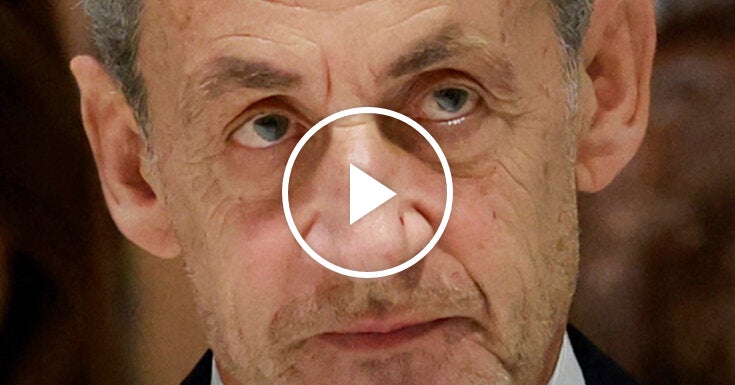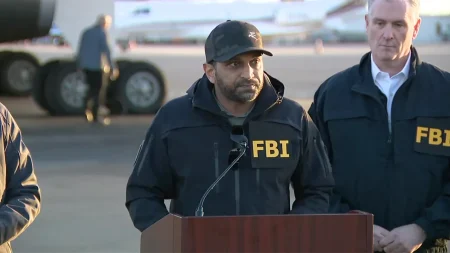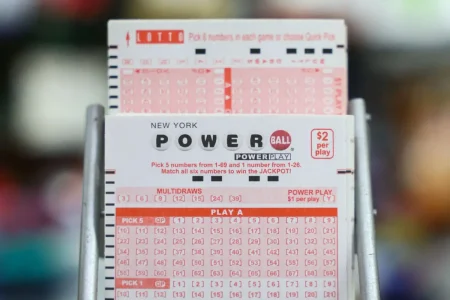Nicolas Sarkozy’s Conviction: A Political Earthquake Shakes France’s Foundations
Former French President Found Guilty in Libyan Campaign Finance Scandal
By James Bennett | October 1, 2025
In a watershed moment for French politics and judicial accountability, former President Nicolas Sarkozy was found guilty on Thursday of illegal campaign financing involving Libya’s former dictator Muammar el-Qaddafi. The conviction sends shockwaves through France’s political establishment and raises profound questions about political accountability, the independence of the judiciary, and the legacy of one of France’s most polarizing modern leaders. This landmark ruling represents the culmination of a years-long investigation that has captivated and divided the nation while setting new precedents for holding former heads of state accountable.
The Verdict: Culmination of a Complex Investigation
The Paris criminal court delivered its judgment following a trial that meticulously examined evidence suggesting Sarkozy orchestrated a scheme to finance his successful 2007 presidential campaign with funds from Qaddafi’s Libyan regime. The court concluded that Sarkozy knowingly exceeded France’s strict campaign finance limits and attempted to conceal the sources of these illegal contributions. Prosecutors presented a compelling case built on witness testimony, financial records, and documents recovered from Libyan archives following Qaddafi’s fall in 2011. These materials painted a damning picture of clandestine meetings between Sarkozy’s associates and Libyan officials, with evidence suggesting millions of euros flowed from Tripoli to Paris.
“This conviction represents the triumph of judicial independence over political influence,” said Pascal Bonnet, a legal analyst specializing in political corruption cases. “For a former president to be found guilty of such serious charges sends a clear message that no one is above the law in the French Republic.” The verdict was particularly striking given Sarkozy’s notorious hands-on management style during his presidency, when critics accused him of maintaining tight control over his political operations. The court rejected defense arguments that any improprieties occurred without Sarkozy’s knowledge, finding instead that he was directly involved in orchestrating the financing scheme.
Historical Context: From Elysée Palace to Defendant’s Chair
Sarkozy’s political career has been defined by remarkable highs and stunning lows. Rising from humble beginnings as the son of a Hungarian immigrant, he projected himself as a dynamic reformer who would revitalize France’s economy and restore its global influence. After serving as Interior Minister and gaining popularity for his tough stance on crime and immigration, Sarkozy captured the presidency in 2007 with promises to modernize the French economy and reinvigorate Franco-American relations. His presidency was marked by an energetic diplomatic style, economic reforms, and a pivotal role in the 2011 NATO intervention in Libya that contributed to Qaddafi’s downfall—a twist of historical irony given the nature of his conviction.
“The relationship between Sarkozy and Qaddafi was always complex and contradictory,” noted Claire Desmoulins, professor of international relations at Sciences Po Paris. “Sarkozy welcomed Qaddafi to Paris with full state honors in 2007, but later became instrumental in the military campaign that ended his regime. This conviction forces us to reexamine that entire relationship through a new lens.” After losing his re-election bid to François Hollande in 2012, Sarkozy briefly retired from politics before attempting a comeback that was derailed by mounting legal troubles. This latest conviction follows a 2021 guilty verdict in a separate corruption case, cementing Sarkozy’s unprecedented status as the most legally embattled former president in modern French history.
Legal and Political Implications: A French Reckoning
The conviction carries profound implications for France’s political landscape and its ongoing struggle with corruption in public life. For a nation that has often been criticized for showing deference to political elites, the willingness to prosecute and convict a former president represents a significant evolution in its approach to accountability. The case also demonstrates the growing independence of France’s judiciary, which has increasingly shown determination to pursue high-profile corruption cases despite political pressures. Sarkozy’s legal team has already announced plans to appeal, ensuring that the case will continue to dominate headlines and political discourse for months to come.
“This verdict comes at a critical moment in French democracy,” explained Sophie Mercier, political scientist at the University of Paris. “With rising populism and growing public cynicism about political elites, the court has affirmed that democratic institutions can hold even the most powerful figures accountable. However, the polarized reaction also highlights the deep divisions in French society.” The conviction has predictably split opinion along political lines. Supporters of Sarkozy’s center-right Republicans party have denounced the verdict as politically motivated judicial overreach, while opponents view it as long-overdue justice. This polarization reflects broader tensions in French politics, where traditional parties face challenges from both far-right and far-left movements that have capitalized on public disillusionment with the political establishment.
International Dimensions: Libya’s Shadow and Global Precedents
The international dimensions of this case cannot be overstated. The conviction implicates not just Sarkozy but raises questions about French foreign policy toward Libya and North Africa more broadly. It provides a rare judicial window into the often murky relationships between Western democracies and authoritarian regimes, where diplomatic, economic, and security interests frequently create ethical complications. The case has been closely watched by international legal experts as a precedent for holding former heads of state accountable for actions that cross national boundaries and involve foreign governments.
“This conviction represents a significant moment in the global fight against high-level corruption,” said Maria Gonzalez, director of the International Anti-Corruption Institute. “It demonstrates that sophisticated financial crimes involving multiple jurisdictions can be successfully prosecuted, even when they involve former heads of state.” The verdict may also have implications for ongoing investigations into other European politicians’ relationships with authoritarian regimes and could encourage prosecutors in other countries to pursue similar cases. For Libya, still struggling to establish stability following years of civil conflict that began with Qaddafi’s overthrow, the verdict offers a measure of validation for those who have long alleged corrupt dealings between their former dictator and Western leaders.
Legacy and Lessons: Democracy on Trial
As France absorbs the implications of this historic verdict, the broader questions it raises about democracy, accountability, and political ethics will resonate far beyond this specific case. Sarkozy’s conviction serves as a powerful reminder that democratic systems must continually strengthen their institutions to ensure that power remains accountable. The case illustrates both the strengths and limitations of legal mechanisms for addressing political corruption. While the court has delivered its verdict, the ultimate judgment on Sarkozy’s legacy will be rendered by history and by French citizens themselves.
“This conviction will forever alter how we view the Sarkozy presidency,” reflected historian Jean-Michel Dupont. “But it should also prompt deeper reflection about campaign finance, the influence of foreign money in democratic processes, and the structures needed to prevent such abuses in the future.” For ordinary French citizens, the case represents a test of faith in their institutions and in the principle that the law applies equally to all. As France navigates this watershed moment, the lasting impact of Sarkozy’s conviction will depend not just on the legal consequences for one man, but on whether it leads to meaningful reforms that strengthen democratic governance and restore public trust in political leadership.
In the final analysis, this landmark case transcends the fate of one former president. It stands as a powerful reminder that democracy requires vigilance, strong institutions, and the courage to hold power accountable—regardless of who wields it. As France continues to process this extraordinary chapter in its political history, the principles at stake resonate far beyond its borders, offering important lessons for democracies worldwide.









